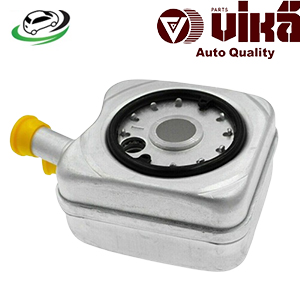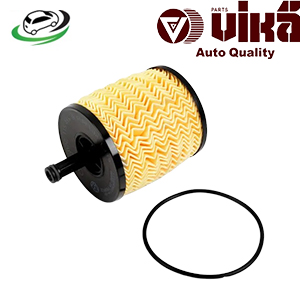-10%
Get VW Touareg 1 TDI / VW Touareg 2 V10 TDI Oil Filter 07Z115562
An oil filter is a device designed to remove contaminants, dirt, and debris from engine oil as it circulates through the engine. Clean oil is vital for an engine’s health because it helps reduce friction between moving parts, maintain proper engine temperature, and prevent premature wear.
Typically located near the engine, the oil filter is a cylindrical component made up of a metal casing with an internal filtering element (usually made of synthetic fibers or paper). The engine oil is pumped through the filter, where it is cleaned before returning to the engine.
2. Functions of an Oil Filter
The primary role of the oil filter is to protect the engine by removing harmful particles from the oil. Here are the key functions of an oil filter:
2.1. Filtering Contaminants
Engine oil circulates through various components of the engine, picking up debris, dirt, and metal particles along the way. The oil filter captures these contaminants and prevents them from recirculating in the engine, ensuring that the oil remains clean and effective at lubricating engine parts.
2.2. Maintaining Oil Flow
While filtering contaminants, the oil filter must allow the engine oil to flow freely. A clogged filter can restrict oil flow, leading to engine wear and damage due to insufficient lubrication. To prevent this, oil filters are designed with bypass valves that allow oil to flow even if the filter is clogged, ensuring that the engine continues to receive oil in emergencies.
2.3. Regulating Oil Pressure
In addition to filtering contaminants, the oil filter helps maintain proper oil pressure. As the oil passes through the filter, it regulates the oil’s flow rate, ensuring that the engine components receive oil at the correct pressure. This is essential for consistent lubrication and protection of critical engine parts.
2.4. Enhancing Engine Longevity
By keeping the oil clean and maintaining proper oil flow, the oil filter helps reduce engine wear, overheating, and sludge buildup. This contributes to a longer engine lifespan and improved overall vehicle performance.
3. Benefits of an Oil Filter
Using a high-quality oil filter provides numerous benefits, including:
3.1. Improved Engine Performance
An oil filter ensures that the engine is receiving clean oil, which enhances lubrication and reduces friction between moving parts. This leads to smoother engine operation, better performance, and improved fuel efficiency.
3.2. Protection Against Wear
Clean oil reduces the amount of friction and heat generated by the engine, helping to minimize wear and tear on components such as pistons, bearings, and camshafts. This protects the engine from premature damage and helps maintain its performance over time.
3.3. Preventing Sludge Buildup
Over time, contaminants in the oil can form sludge, which can clog vital engine parts and reduce oil flow. A good oil filter prevents sludge formation by capturing debris and contaminants before they can accumulate and cause damage.
3.4. Extending Engine Life
By ensuring that the oil remains clean and free of harmful particles, the oil filter helps extend the life of the engine. Proper filtration reduces the risk of engine failure and costly repairs, providing long-term reliability.
3.5. Better Fuel Efficiency
A clean engine runs more efficiently, which in turn improves fuel consumption. By maintaining proper lubrication and minimizing friction, the oil filter helps the engine operate at peak efficiency, which can lead to savings on fuel.
4. Types of Oil Filters
There are several types of oil filters available, each designed for specific applications and vehicles. Understanding the differences can help you choose the right filter for your engine.
4.1. Full-Flow Oil Filters (Primary Oil Filters)
Full-flow oil filters are the most common type and are used in most vehicles. They filter all the engine oil before it circulates through the engine, ensuring that only clean oil reaches the engine components. Full-flow filters are designed to allow a high flow rate, ensuring the engine always receives enough oil, even in cold conditions.
4.2. Secondary Oil Filters (Bypass Filters)
Secondary oil filters work alongside the full-flow filter to provide additional filtration. These filters process only a small percentage of the oil at any given time, removing finer particles and extending the life of the oil. Bypass filters are often used in high-performance or heavy-duty applications where additional filtration is beneficial.
4.3. Cartridge Oil Filters
Cartridge oil filters are often used in newer vehicles. These filters consist of a replaceable filter element housed within a permanent canister. Unlike traditional spin-on filters, cartridge filters are more environmentally friendly since only the filter element is replaced during oil changes.
4.4. Magnetic Oil Filters
Magnetic oil filters use magnets to capture and remove metal particles from the oil. These filters are particularly useful in high-performance engines where metal wear is more common. The magnet traps ferrous particles that the standard filter media may not catch.
5. Common Issues with Oil Filters
While oil filters are generally reliable, several issues can arise if they are not maintained properly or if a substandard filter is used. Some common problems include:
5.1. Clogging
Over time, oil filters can become clogged with contaminants, reducing oil flow and causing the engine to overheat or suffer from inadequate lubrication. Clogged filters can result in engine damage if not addressed.
5.2. Leaks
A poorly installed oil filter or a damaged gasket can cause oil leaks, reducing the amount of oil circulating in the engine. Leaks can lead to low oil pressure and increased engine wear.
5.3. Bypass Valve Failure
The bypass valve in an oil filter allows oil to bypass the filter when the filter becomes clogged. If the valve fails to open, it can lead to engine oil starvation, causing severe engine damage.
5.4. Using the Wrong Filter
Using an oil filter that is not designed for your specific engine can result in poor filtration, restricted oil flow, or a loose fit, all of which can negatively impact engine performance.
6. Maintenance Tips for Oil Filters
To keep your oil filter functioning properly and your engine running smoothly, regular maintenance is key. Here are some tips:
6.1. Change the Oil and Filter Regularly
Follow your vehicle manufacturer’s recommendations for oil and oil filter changes. Regularly replacing the filter ensures that it remains effective at removing contaminants from the oil. Most vehicles require oil filter changes every 5,000 to 7,500 miles, depending on driving conditions and oil type.
6.2. Use the Correct Oil Filter
Always use the oil filter recommended by the vehicle manufacturer or a high-quality equivalent. Using the wrong filter can result in poor filtration, oil leaks, or even engine damage.
6.3. Inspect the Filter During Oil Changes
When changing the oil, inspect the old filter for any signs of damage, leaks, or excessive sludge buildup. This can help identify any underlying issues with your engine or oil system.
6.4. Use High-Quality Engine Oil
High-quality engine oil reduces the amount of contaminants and particles that the filter needs to remove. Synthetic oils, in particular, provide better lubrication and produce fewer contaminants than conventional oils.
6.5. Monitor Oil Pressure
Keep an eye on your vehicle’s oil pressure gauge. If you notice a drop in oil pressure, it could indicate a clogged filter or other lubrication system issues. Addressing the problem early can prevent engine damage.
7. Conclusion
The oil filter is a critical component in an internal combustion engine, responsible for maintaining the cleanliness and quality of the engine oil. By removing contaminants, ensuring proper oil flow, and regulating oil pressure, the oil filter plays a vital role in protecting the engine from wear and tear, improving performance, and extending engine life.
Understanding the functions, benefits, and types of oil filters is essential for vehicle owners. Regular maintenance, including timely oil and filter changes, can help ensure that the oil filter operates effectively and contributes to the overall health and longevity of the engine. By prioritizing proper oil filtration, you can enjoy a more reliable and efficient vehicle for years to come.
Follow us on Facebook for more parts.




Reviews
Clear filtersThere are no reviews yet.